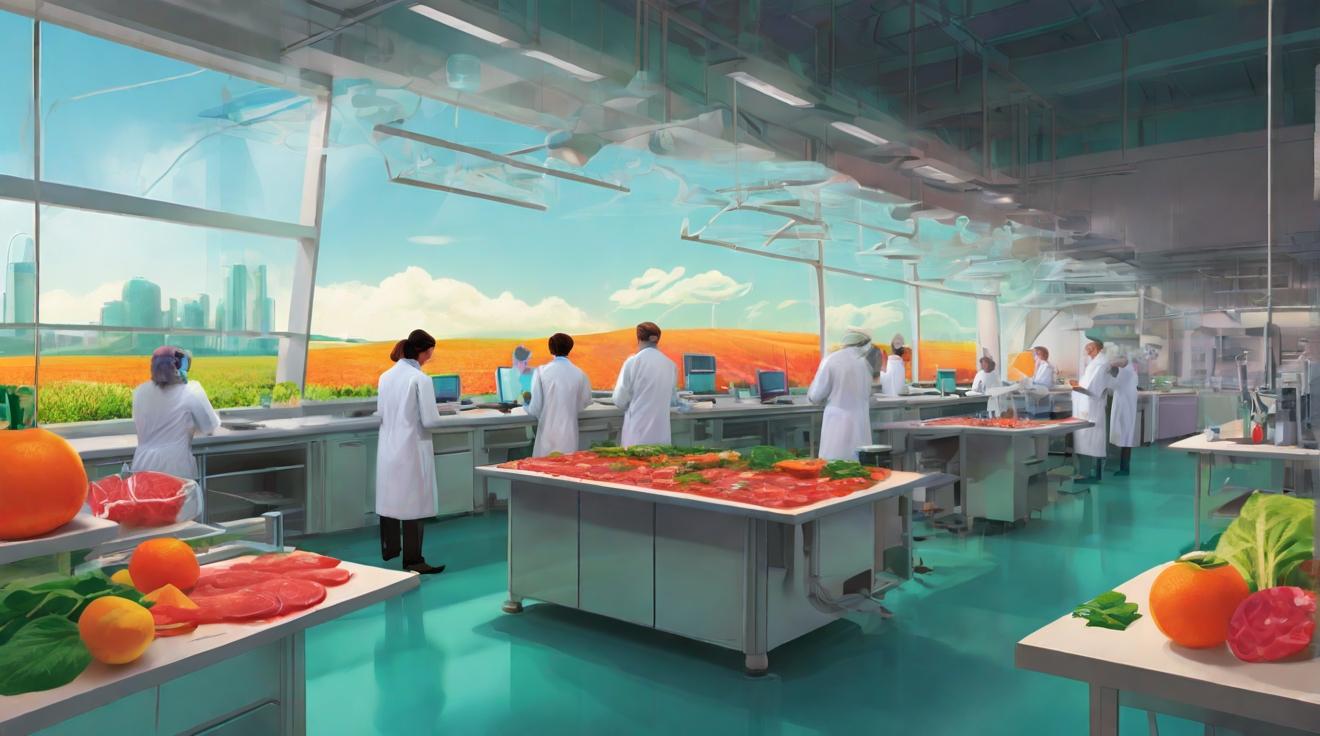GEA Group Announces $20 Million Investment in Alternative Proteins Technology Center in Wisconsin
In a significant move signaling its commitment to the future of food technology, GEA Group, a global leader in process engineering, has declared an investment of €18 million (approximately $20 million) in a new technology center dedicated to alternative proteins in Janesville, Wisconsin, USA. The groundbreaking for the new food tech hub is slated for spring of 2024, with its doors expected to open the following year.
The technology center aims to pioneer the development of microbial, cell-based, and plant-based foods, providing a critical platform for ushering in the next generation of sustainable food options. This investment underscores the growing demand for innovative food production techniques, particularly in the United States, where the market for alternative proteins is rapidly expanding.
Bridging the Innovation Gap
Dr. Reimar Gutte, Senior Vice President Liquid and Fermentation Technologies at GEA, emphasized the center's role in addressing a crucial innovation gap within the industry. "A number of new food pioneers in the USA are already writing innovation history. When it comes to industrial production, the market is still on the starting blocks," he stated.
The facility in Janesville will feature an end-to-end process line, equipped with GEA's state-of-the-art technologies such as multifunctional fermenters or bioreactors, high-shear mixing, sterilization, homogenization, cell separation, and filtration equipment. This versatile system will allow for extensive testing of cultivation and fermentation strategies, propelling the accelerated development of alternative proteins.
Accelerating Industry Growth
Arpad Csay, leader of GEA’s North American new food business, highlighted the center's potential to significantly boost the alternative protein sector's growth by providing essential scaling facilities. "Most new food companies are located in North America and the bulk of the investments in alternative proteins flow into this region. Consequently, there is an urgent need for scaling facilities like ours," Csay remarked.
The investment in Janesville not only aligns with GEA's strategic focus on fostering food technology innovations but also complements its existing network of new food centers of excellence around the globe, including a pilot line in Hildesheim, Germany, and specialized technology centers in Skanderborg, Denmark; Oelde, Germany; and Bakel, Netherlands.
Training the Next Generation of Biotechnologists
Beyond its capacity for process testing and validation, the Janesville center will also play a vital role in educating biotechnology specialists, further contributing to the sector’s development. This move is indicative of GEA's holistic approach to innovation, combining cutting-edge technology with essential knowledge sharing and training.
As the alternative proteins market continues to evolve, the establishment of GEA's new food technology center in Wisconsin represents a pivotal step towards sustainable food production. This development not only positions GEA as a key player in the alternative proteins arena but also paves the way for future food technologies that promise to redefine our food systems.
With regulatory bodies like the FDA showing openness to innovative food technologies, the stage is set for significant advancements in the production of alternative proteins. As the industry looks towards scalable and sustainable food solutions, GEA’s investment in Wisconsin marks a critical milestone in the journey towards a more food-secure future.
Analyst comment
Positive news: GEA Group’s $20 million investment in the alternative proteins technology center in Wisconsin is a significant move that demonstrates their commitment to sustainable food production. This investment will accelerate the development of alternative proteins and address the innovation gap in the industry. The center will also provide essential scaling facilities and contribute to the education of biotechnology specialists. With regulatory openness and increasing demand for innovative food production techniques, GEA’s investment marks a critical milestone in the journey towards a more food-secure future.













